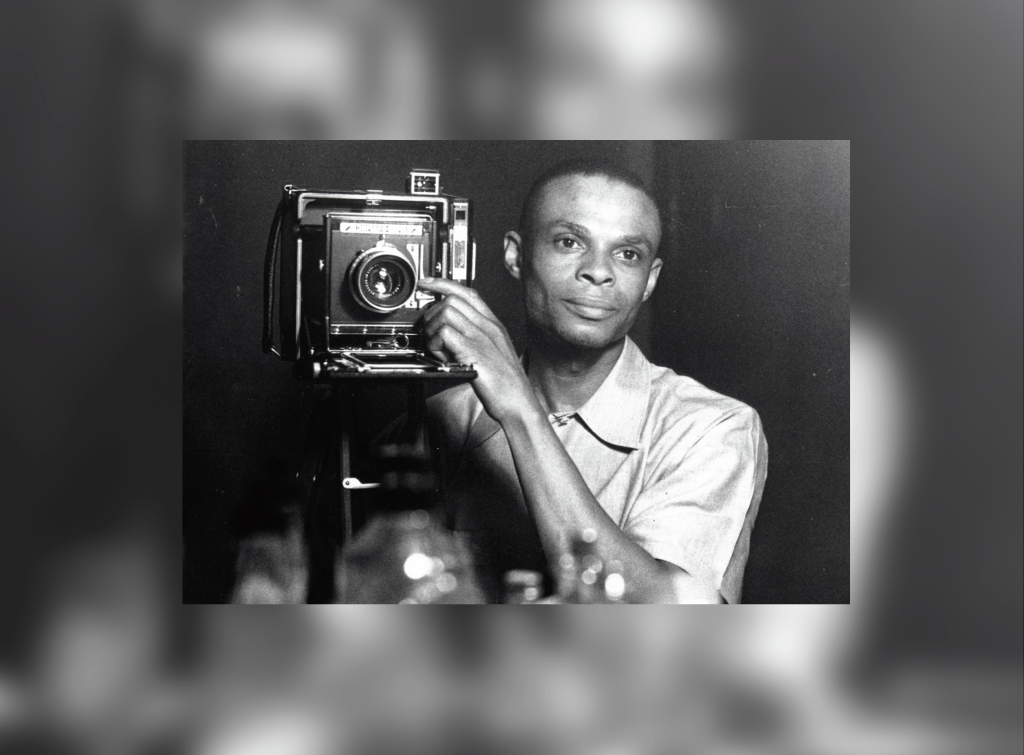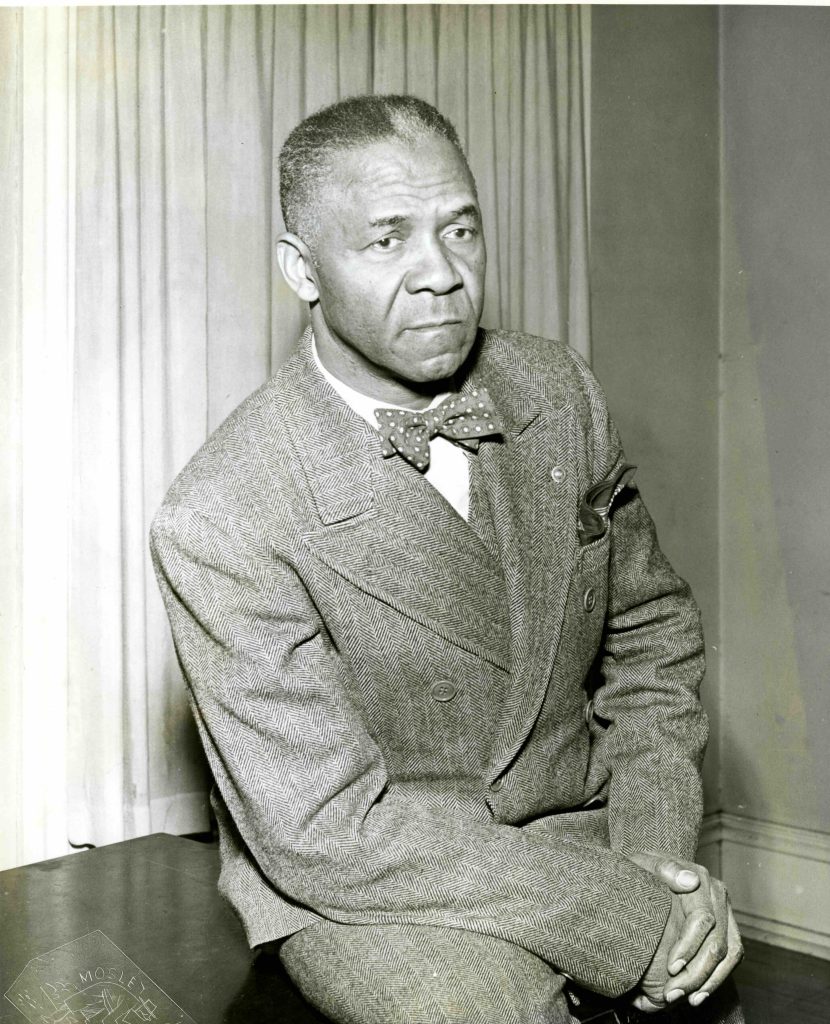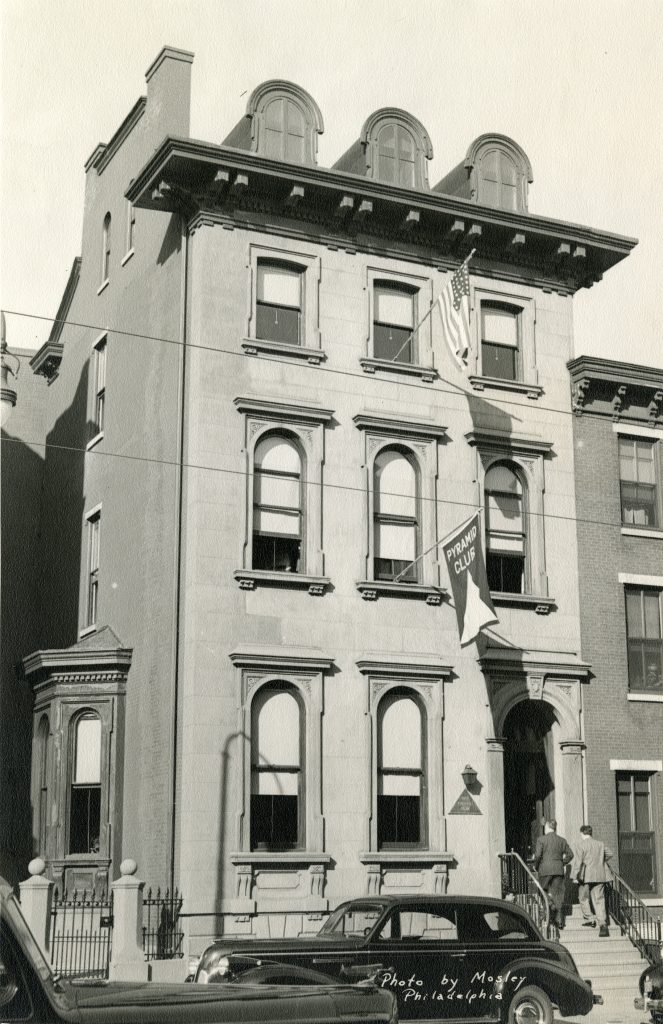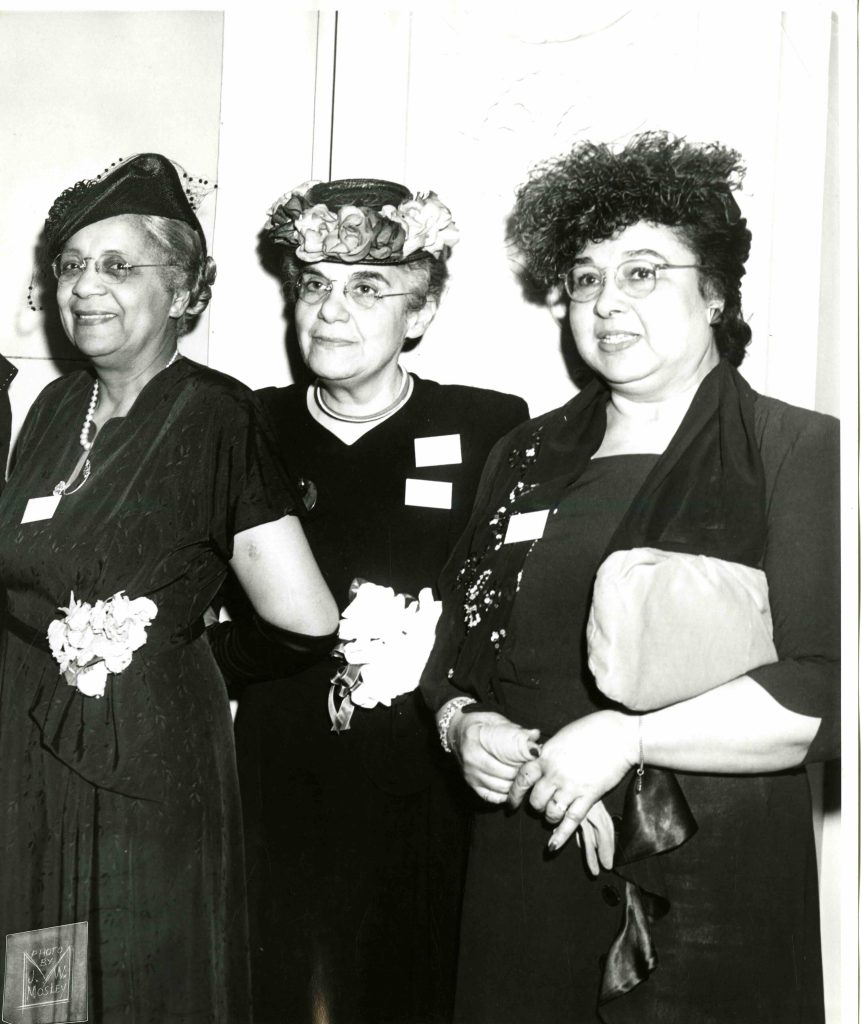
Guest post by Leslie Willis-Lowry, Associate Archivist at the Charles L. Blockson Afro-American Collection
Temple University Libraries is proud to announce that the Charles L. Blockson Afro-American Collection has been awarded a $250,000 grant from the Getty Foundation. Grant funding will support the preservation of the John W. Mosley Photograph Collection, documenting Black life in Philadelphia from the mid-1930s through the late 1960s, and launch of VIRTUAL BLOCKSON | The Pyramid Club: Black Leisure and Cultural Empowerment, a digital humanities project in partnership with Temple Libraries’ Loretta C. Duckworth Scholars Studio. This honor will have a profound impact on the Blockson Collection’s ability to increase public and scholarly accessibility to this important photographic collection while encouraging new ways of engaging with it.

circa 1940s.
Photograph by John W. Mosley
Because only a small portion of an estimated 300,000 negatives have been digitized and are accessible through multiple access points on the internet, the Blockson Collection has experienced an increase in research requests. Digital preservation of the whole collection will open doors to greater collaboration, aiding in teaching, research, audience building, new scholarship, and broader communication and access across physical and geographical boundaries.

circa 1940s.
Photograph by John W. Mosley
Virtual Blockson, a seminal virtual reality game, will use the John W. Mosley Photograph Collection and ephemera, housed in the Charles L. Blockson Afro-American Collection, to build a portal that will create a virtual reality environment for university/high school students and educators to become familiar with the work of African American artists and to explore the preeminent annual art exhibitions they participated in at Philadelphia’s African American cultural legacy, the Pyramid Club. The virtual reality game presents social and cultural history of the Black experience through the impact of two prominent African American artists, such as Dox Thrash and Laura Wheeler Waring, whose works were exhibited at the Pyramid Club, once located at 1512 Girard Avenue in North Philadelphia. Mosley was the photographer and Art Director for the Pyramid Club. He published an annual album of photographs for the club. The inaugural issue was published in 1941. An accompanying teaching toolkit, consisting of teaching materials and onboarding documentation for educators, will also be produced. Accessibility testing (for disability), documenting accessibility approaches, general user testing for gameplay, assessment of the pedagogical efficacy of the game, and assessment of the sufficiency of the teaching toolkit will also take place.

circa 1940s.
Photograph by John W. Mosley
The Charles L. Blockson Afro-American Collection is one of the nation’s leading research facilities for the study of the history and culture of people of African descent. This collection of over 700,000 items has materials on the global black experience in all formats: books, manuscripts, sheet music, pamphlets, journals, newspapers, broadsides, posters, photographs, and rare ephemera. Temple Libraries’ Loretta C. Duckworth Scholars Studio (LCDSS) serves as a space for student and faculty consultations, workshops, and collaborative research in digital humanities, digital arts, cultural analytics, and critical making. It offers a wide range of technical equipment, software, and support for scholarly practices involving digital methods for interdisciplinary research and pedagogy, including text mining and analysis, working in, and creating 3D spaces, using geospatial technology, incorporating games into education, and much more. Both the LCDSS and Blockson Collection are units of Temple University Libraries.
The Getty Foundation fulfills the philanthropic mission of the Getty Trust by supporting individuals and institutions committed to advancing the greater understanding and preservation of the visual arts in Los Angeles and throughout the world. Through strategic grant initiatives, it strengthens art history as a global discipline, promotes the interdisciplinary practice of conservation, increases access to museum and archival collections, and develops current and future leaders in the visual arts. It carries out its work in collaboration with the other Getty Programs to ensure that they individually and collectively achieve maximum effect.
